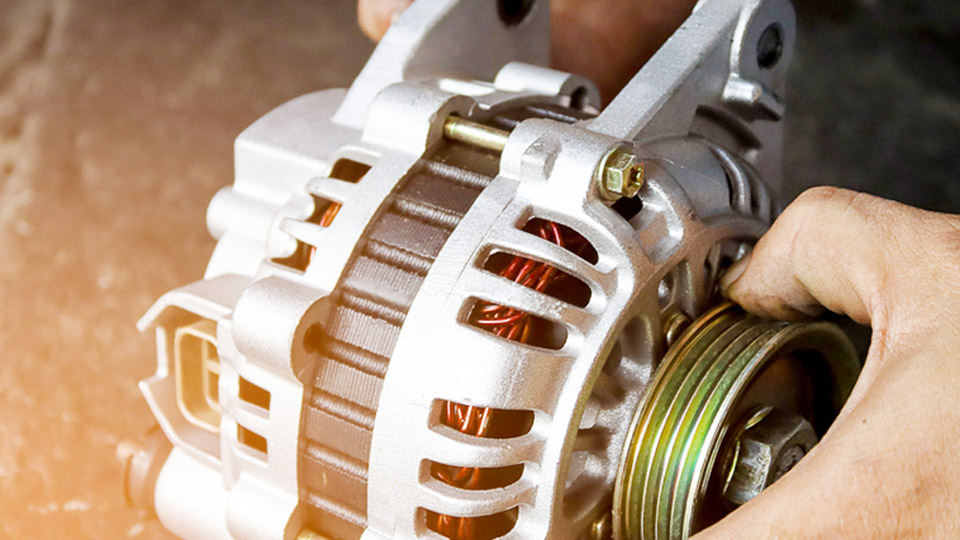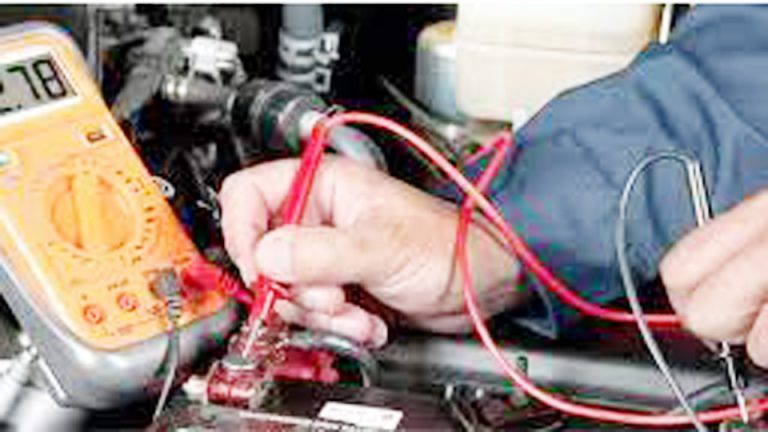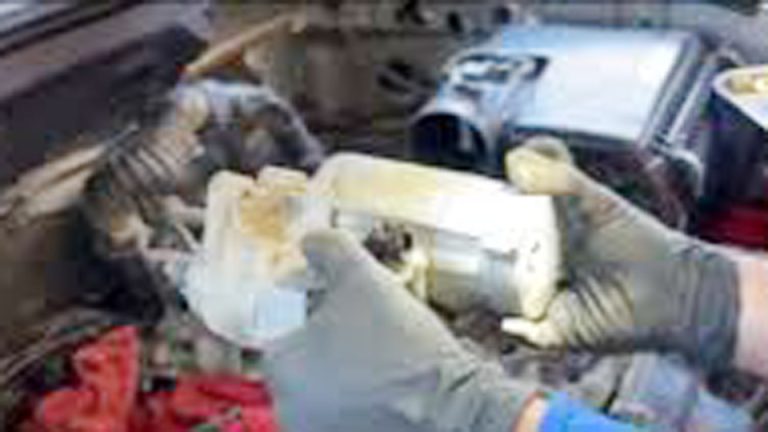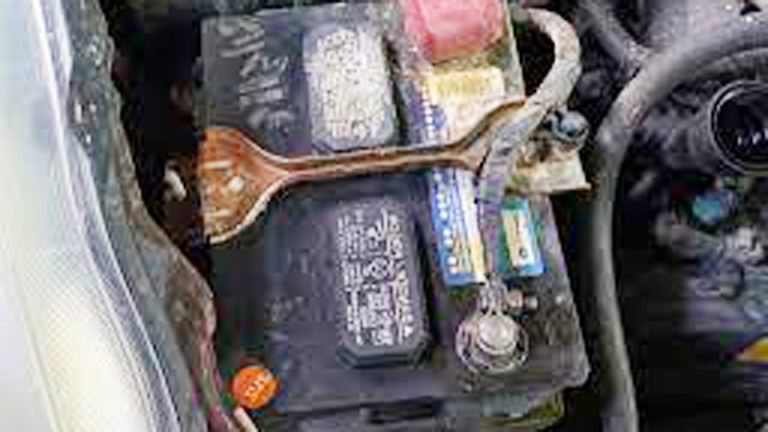Imagine you’re on your way to a weekend getaway, and your car starts acting up—dashboard lights flickering, radio cutting out, and that sinking feeling that something’s wrong. Been there, done that. As a guy who’s spent countless hours under the hood of everything from a beat-up old Dodge to a shiny new Honda, I’ve seen my fair share of alternator issues.
One question I hear all the time is, “How long does it take to fix a car alternator?” It’s a fair question, especially when you’re stuck wondering if you’ll be back on the road in an hour or stuck waiting for days.
I’m going to walk you through the whole process—how long it takes, what can slow it down, and how to make sure it’s done right. Whether you’re new to cars or a seasoned gearhead, I’ve got practical tips and stories from my own garage to help you out.

Image by whocanfixmycar
What’s the Deal with Your Car’s Alternator?
Let’s get on the same page about what an alternator does. Picture it as the heart of your car’s electrical system. It generates power to keep your battery charged and runs everything from your headlights to the air conditioning.
When it fails, your car’s basically living on battery life alone, and trust me, that’s like running a marathon on an empty stomach. I learned this lesson with my 2003 Toyota Corolla when the alternator quit on a late-night drive, leaving me stranded with a dead battery.
Knowing what the alternator does helps you understand why fixing it is so important—and why the repair time matters. So, how long does it take? Let’s break it down.
Typical Time to Fix an Alternator
In my experience, replacing a car alternator usually takes 1 to 3 hours at a professional shop. If you’re doing it yourself, it might take 2 to 4 hours, depending on your skills and the car’s setup. But it’s not always that simple—some cars are a breeze, while others are like solving a puzzle.
I once swapped the alternator on my Ford Ranger in under an hour, but my buddy’s Audi took half a day because of its cramped engine bay. Let’s look at the factors that affect the timeline.
Factors That Influence Repair Time
Several things can make an alternator repair quick or drag it out. Here’s what I’ve seen in my years of wrenching:
How Easy Is the Alternator to Reach?
Some cars have alternators sitting right up front, ready to be swapped out. Others hide them behind a jungle of hoses and wires. My old Chevy Impala was a dream—pop the hood, and the alternator was right there, taking about 45 minutes to replace. But on a luxury car like a Mercedes, you might need to remove other parts first, pushing the job closer to 2-3 hours.
Mechanic’s Skill Level
A pro who’s done hundreds of alternator swaps will work faster than someone new to the game. I’ve watched mechanics at my local shop breeze through a Honda Civic alternator replacement in under an hour. If you’re DIY-ing it for the first time, expect to spend extra time figuring out bolts and wiring—maybe 3-4 hours total.
Need for Diagnosis
Sometimes, it’s not obvious the alternator’s the problem. If your mechanic needs to test the battery, wiring, or other systems, add 20-40 minutes for diagnostics. I had this with my Jeep Wrangler once—the shop thought it was a bad battery at first, which added time to the job.
Availability of Parts
If the shop has the right alternator in stock, you’re good to go. But if they need to order one, you could be waiting 1-2 days. This happened with my neighbor’s Subaru Outback; the shop didn’t have the part, and we were stuck until it arrived.
New vs. Rebuilt Alternator
Using a new alternator is straightforward, but a rebuilt one might need extra checks to ensure it’s up to spec. I’ve used rebuilt alternators to save money, but they sometimes need tweaking, adding 10-20 minutes to the job.
Here’s a quick table to sum it up:
| Scenario | Estimated Time | Notes |
|---|---|---|
| Professional (Easy Access) | 1-1.5 hours | Compact cars like Toyota Corolla or Honda Accord. |
| Professional (Hard Access) | 2-3 hours | SUVs or luxury cars with tight engine bays. |
| DIY (Experienced) | 2-3 hours | Assumes you’ve got tools and know your car. |
| DIY (Beginner) | 3-4 hours | Extra time for learning and troubleshooting. |
| Diagnostic Time | +20-40 minutes | If the issue isn’t immediately clear. |
| Parts Delay | 1-2 days | If the alternator needs to be ordered. |
Alternator Repair Process Step-by-Step
To give you a sense of why it takes a certain amount of time, let’s walk through the repair process. I’ve done this enough times to know it inside out, so here’s how it goes:
Step 1: Confirm the Alternator’s the Problem
The mechanic will use a multimeter to check the alternator’s output (should be 13.5-14.5 volts) and test the battery. This takes about 15-30 minutes. I always do this first when I suspect alternator issues, like when my Nissan Sentra’s lights started dimming.
Step 2: Disconnect the Battery
Safety first—you don’t want to get zapped. Disconnecting the battery’s negative terminal takes just a couple of minutes. I skipped this once on my Dodge and got a spark that made my heart skip a beat. Never again.
Step 3: Remove the Old Alternator
This is where the time varies. The alternator is held by bolts and connected to a serpentine belt. Removing the belt and unbolting the alternator can take 20-45 minutes, depending on access. My Ranger was easy, but a friend’s VW Jetta took longer because of extra components in the way.
Step 4: Install the New Alternator
The new alternator goes in, gets bolted up, and is reconnected to the belt and wiring. This usually takes 15-30 minutes. I found this part quick on my Honda, but some cars have tricky wiring that slows things down.
Step 5: Test Everything
After reconnecting the battery, the mechanic starts the car and checks the alternator’s output. This takes 10-20 minutes to ensure everything’s working. I always test with a multimeter to avoid surprises later.
Cost of an Alternator Repair
Fixing an alternator isn’t just about time—it’s about cost too. Here’s what I’ve seen for typical expenses:
| Item | Estimated Cost | Notes |
|---|---|---|
| New Alternator | $120-$450 | Varies by car make and model. |
| Rebuilt Alternator | $60-$250 | Cheaper but may have shorter lifespan. |
| Labor (Professional) | $80-$350 | Depends on shop rates and car complexity. |
| DIY Parts Cost | $60-$450 | New or rebuilt alternator plus any tools. |
| Diagnostic Fee | $40-$120 | Sometimes included in labor cost. |
I saved some cash using a rebuilt alternator on my Chevy, but it failed after 18 months. A new one costs more but often lasts longer.
Signs Your Alternator Needs Fixing
How do you know it’s time to replace the alternator? Here are the red flags I’ve learned to spot:
- Flickering or Dim Lights: Headlights or dashboard lights losing brightness.
- Battery Warning Light: A battery or “ALT” icon glowing on the dash.
- Weird Noises: Whining or grinding from the alternator area.
- Dead Battery: If the battery keeps dying, the alternator might not be charging it.
- Electrical Glitches: Power windows, radio, or other systems acting up.
I ignored the warning light on my Toyota once, thinking it was a fluke. Big mistake—I was stuck on the side of the road an hour later. Catch these signs early.
Should You Fix It Yourself or Go to a Shop?
This is a big question. Here’s how I weigh the options:
DIY Repair
If you’re comfortable with tools, replacing an alternator is doable. You’ll need a socket set, screwdriver, and maybe a belt tensioner tool. I swapped the alternator on my Ford in about 2 hours, but it was my second time. A beginner might need 3-4 hours, plus time to learn the process. You’ll save on labor, but it’s easy to mess up if you’re not careful.
Professional Repair
A shop will cost more but get it done faster—usually 1-2 hours for straightforward jobs. I took my Audi to a mechanic because the alternator was buried, and they had it done in no time. If you’re not confident, a pro is the way to go.
Tips to Speed Up the Repair
Want to get back on the road ASAP? Here’s what I’ve learned to make the process quicker:
- Call Ahead for Parts: Make sure the shop has the right alternator in stock to avoid delays.
- Pick a Reputable Shop: A skilled mechanic will save time over a newbie.
- Diagnose Early: If you suspect alternator trouble, get it checked before it dies completely.
- Bring Your Own Part: If you’re DIY-ing, buy the alternator beforehand to skip the wait.
I made the mistake of not checking parts availability for my Subaru, and it cost me an extra day. Plan ahead to save time.
Why Alternators Fail
Alternators don’t just die out of nowhere. Here’s what I’ve seen cause failures:
- Worn Bearings: The alternator’s moving parts wear out, causing noise or failure.
- Bad Voltage Regulator: This controls power output, and if it fails, the alternator struggles.
- Broken Belt: The serpentine belt drives the alternator—if it snaps, the alternator stops.
- Electrical Problems: Corroded wires or short circuits can fry the alternator.
I had a belt snap on my Nissan, and it was an easy fix once I replaced it. Knowing the cause helps you prevent future issues.
Preventing Alternator Failure
Nobody wants to deal with a dead alternator, so here’s how I keep mine running strong:
- Check the Battery: A weak battery forces the alternator to work harder.
- Inspect the Belt: Look for cracks or wear every few months.
- Regular Maintenance: Have the alternator tested during annual checkups.
- Listen Up: Whining or grinding noises are early warnings.
These habits saved my bacon after my Toyota’s alternator died. A little care goes a long way.
What to Avoid During an Alternator Repair
I’ve made my share of mistakes, so here’s what not to do:
- Don’t Forget to Disconnect the Battery: You could get shocked or damage electronics.
- Don’t Buy a Cheap Alternator: Low-quality parts fail faster.
- Don’t Rush the Job: Hurrying can lead to stripped bolts or loose connections.
- Don’t Ignore the Belt: A worn belt can ruin your new alternator.
I rushed a job on my Dodge once and forgot to tighten a bolt properly. The alternator failed again a week later. Slow and steady wins the race.
Practical Tips for a Smooth Repair
Here are some tips to make your alternator repair hassle-free:
- Invest in Quality: A new, high-quality alternator lasts longer than a cheap one.
- Keep Tools Handy: A socket set, screwdriver, and multimeter are your friends.
- Double-Check Connections: Loose wires can cause problems down the road.
- Test After Installation: Make sure the alternator’s charging properly before driving off.
These tricks have saved me time and money, and they’ll do the same for you.
Get Your Car Running Smoothly
So, how long does it take to fix a car alternator? Most shops can do it in 1-3 hours, while a DIY job might take 2-4 hours, depending on your car and experience.
From easy-access Hondas to tricky Audis, the process varies, but with the right prep, you’ll be back on the road fast. I’ve been through this with my own cars, and trust me, a little planning and care make all the difference.
Keep an eye on your car’s warning signs, maintain your battery and belts, and don’t skimp on quality parts. With these steps, you’ll keep your alternator—and your car—running strong.
Frequently Asked Questions
How can I tell if my alternator needs fixing?**
Look for flickering lights, a battery warning light, whining noises, or a battery that keeps dying. These are classic signs the alternator’s failing.
Can I fix an alternator myself?
Yes, if you’re handy with tools and have a few hours. You’ll need a socket set, screwdriver, and the right alternator for your car. It’s doable but takes patience.
How much does it cost to replace an alternator?
Expect $200-$800 total, including parts ($120-$450) and labor ($80-$350). Rebuilt alternators are cheaper but might not last as long.
What happens if I don’t fix a bad alternator?
Your battery will drain, and the car will eventually stop running—usually within 20-50 miles. Get it fixed ASAP to avoid being stranded.
How can I prevent alternator failure?
Regularly check the battery, serpentine belt, and alternator during maintenance. Listen for unusual noises and address them quickly.




